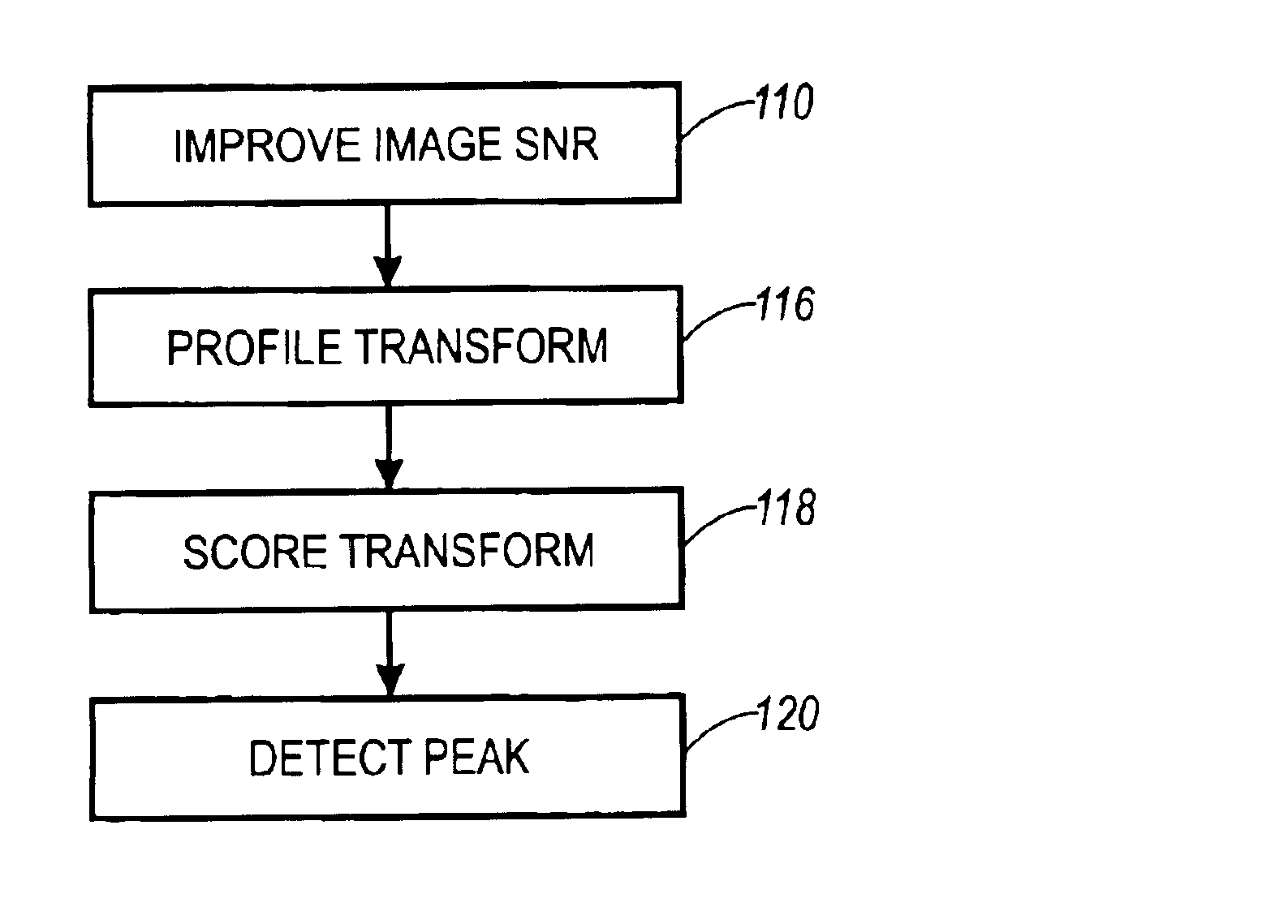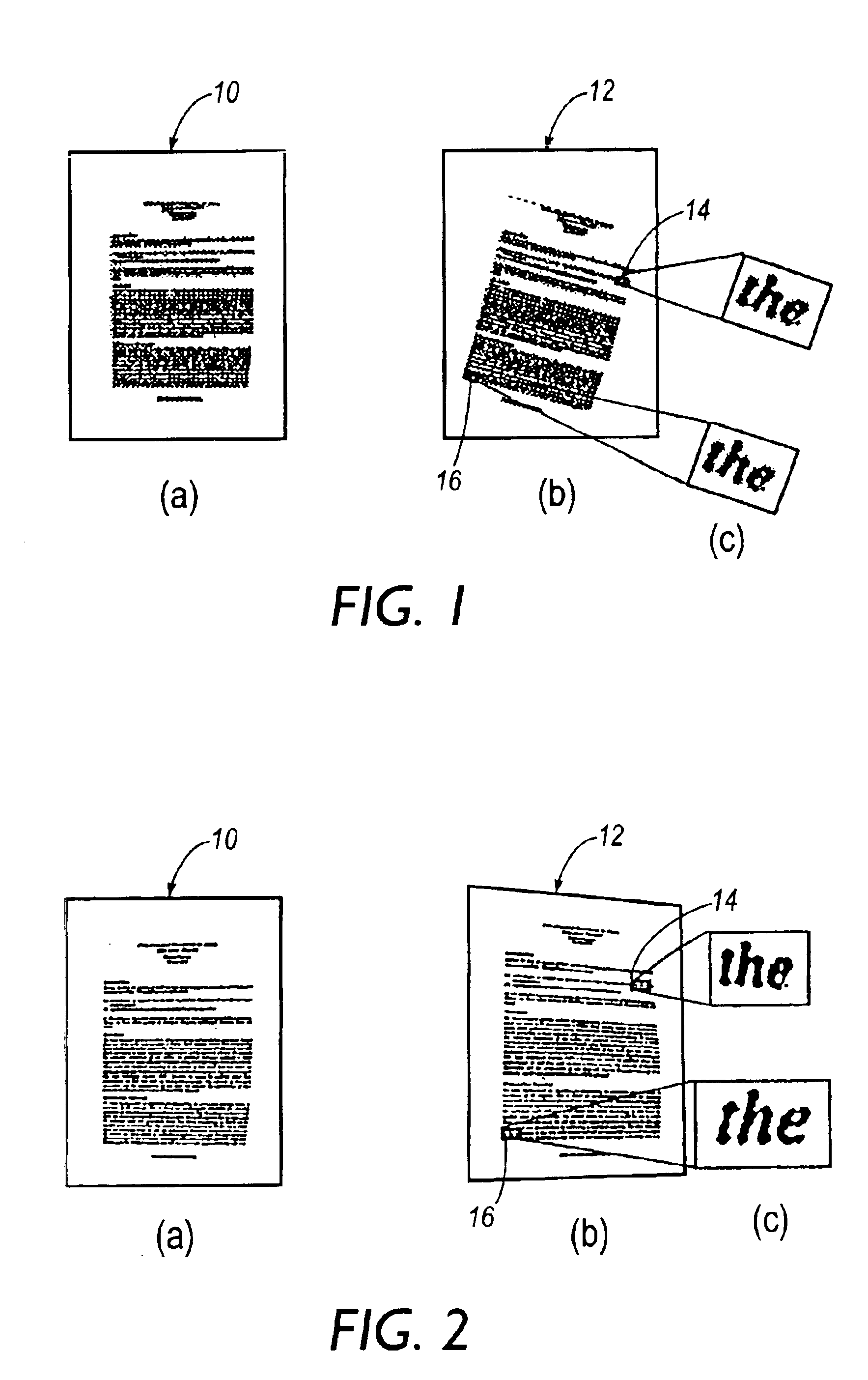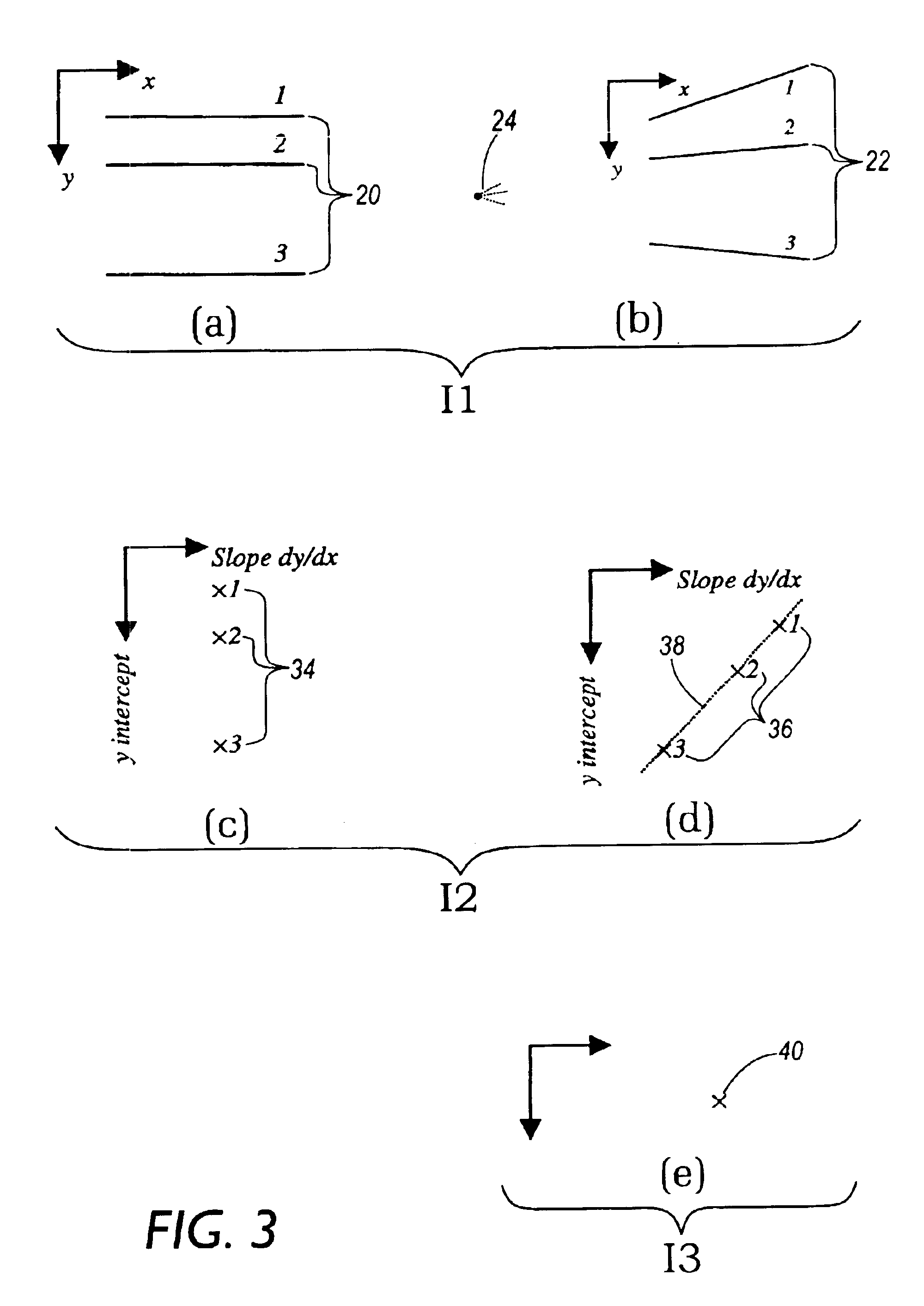Method and apparatus for resolving perspective distortion in a document image and for calculating line sums in images
a document image and perspective distortion technology, applied in image enhancement, instruments, character recognition, etc., can solve the problems of inexperienced users not even knowing the importance of camera position, degrading the captured image, and affecting the processing efficiency of the image, so as to achieve the effect of computational efficiency
- Summary
- Abstract
- Description
- Claims
- Application Information
AI Technical Summary
Benefits of technology
Problems solved by technology
Method used
Image
Examples
example 1
A first example of Y-pencil estimator will be described which is most similar to the X-pencil estimators described above. However, for reasons explained below, the second example of Y-pencil estimator is preferred in practice.
The Y-pencil estimator (in this first example) includes steps which are analogous to the steps 110, 116, 118, and 120 described with reference to the second example of the X-pencil estimator. Only the differences are described here.
In order to improve the SNR of the image for detecting Y-lines (such as justified column boundaries), the image is dilated (i.e., is made more black). Each black pixel is dilated into a 3×3 pixel structure (or larger structure, depending on the input image resolution and font sizes), followed by filling isolated holes. This has the effect of “filling in” the text characters to form continuous blocks representing the text columns. The borders of the columns are then extracted by taking a horizontal difference image, while shifting the...
example 2
To address the above problem, a second type of Y-pencil estimator has been developed. The following discussion assumes a binary (i.e., only black / white) image. The principles will be expanded in Example 3 to cover gray-scale images.
Referring to FIG. 13, the second technique is to select pixels in an image as being representative of a column border depending on the amount of white space adjacent to the pixel. Points which are adjacent to a relatively large white space are more likely to form part of a column boundary. A good choice for this white space should allow detection of as many aligned text edges as possible, but also as few spurious large white spaces as possible.
In this example, for computational convenience, a significant white space is detected by matching with a single shape. The shape should be quite tall in order that spaces in the middle of text lines can be eliminated from consideration by observing that a text line above or below does not have a corresponding space....
example 3
In another alternate embodiment, the estimation is performed directly on a grayscale image. In X-pencil estimation, this is simply a matter of performing the initial line sums through the observed image as sums of gray values, other steps remaining as described for other embodiments. In Y-pencil estimation, a method based on grayscale morphology is employed for detecting points adjacent to large white triangles. This method actually reduces to that employed in the binary case (Example 2 above). Otherwise Y-pencil estimation proceeds as in other examples.
Referring to FIG. 15, the method firstly considers the detection of points with a white triangle of scale s to their left. For each point p (e.g., point 167), the maximum gray value in such a triangle (not including point p) is computed (e.g., triangle 168). This maximum is denoted by TL(p,s). The method then finds the minimum gray value of points in a square of side length s (e.g., square 169), which has the center of its left hand ...
PUM
 Login to View More
Login to View More Abstract
Description
Claims
Application Information
 Login to View More
Login to View More - R&D
- Intellectual Property
- Life Sciences
- Materials
- Tech Scout
- Unparalleled Data Quality
- Higher Quality Content
- 60% Fewer Hallucinations
Browse by: Latest US Patents, China's latest patents, Technical Efficacy Thesaurus, Application Domain, Technology Topic, Popular Technical Reports.
© 2025 PatSnap. All rights reserved.Legal|Privacy policy|Modern Slavery Act Transparency Statement|Sitemap|About US| Contact US: help@patsnap.com



